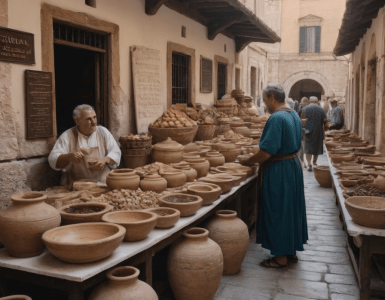Ever wondered why we do the things we do? Why certain holidays are celebrated, why specific foods are considered delicacies, or why certain social customs exist? Often, the answers lie buried deep within history, revealing surprising links between seemingly disparate cultures and events. This isn’t your grandma’s history lesson; we’re diving into the weird, wonderful, and occasionally wacky connections that shaped our world.
The Unexpected Legacy of Potatoes: From Incan Empire to Irish Famine
The humble potato. We might think of it as a staple in many cuisines, but its journey is far from simple. Originally cultivated in the Andes Mountains by the Inca Empire, the potato only reached Europe in the 16th century, courtesy of the Spanish conquistadors. This introduction wasn’t immediately embraced; it was initially viewed with suspicion. However, its resilience and high yield eventually made it a crucial part of the Irish diet. Ironically, this dependence led to the devastating Irish Potato Famine in the 19th century – a dramatic example of how a single crop, with its roots in a distant empire, could have such a profound and devastating impact on a nation’s history.
The Curious Case of the Fork: From Byzantine Royalty to Everyday Use
Did you know that the fork, now a ubiquitous dining utensil, was once considered a symbol of extravagance and even decadence? Its origins can be traced back to the Byzantine Empire, where early versions were used by the elite. Its adoption in Europe was slow and met with resistance, with some considering it effeminate or even sacrilegious. It wasn’t until the Renaissance that its use became more widespread, eventually becoming an indispensable part of Western dining etiquette. The fork’s journey from luxury item to everyday necessity is a fascinating reflection of changing social norms and evolving culinary practices.
Tea’s Tangled Tale: From China’s Imperial Courts to Global Trade
The world of tea is steeped in history, literally! Its origins lie in China, where it was initially consumed as a medicinal drink before evolving into a beloved beverage among the imperial court. The Silk Road played a crucial role in its spread westward, slowly introducing it to various cultures, each adding their own unique spin to its preparation and consumption. The British East India Company’s dominance of the tea trade in the 18th and 19th centuries, however, led to both immense wealth and the Opium Wars, highlighting the unexpected geopolitical consequences of a simple cup of tea.
The Surprising History of Coffee: From Sufi Mysticism to Global Caffeine Rush
Similar to tea, coffee’s history is filled with unexpected twists. Legend suggests that its discovery was accidental, perhaps by a goat herder observing the energetic effects on his flock. It spread from its Ethiopian origins with the help of Sufi mystics, who appreciated its stimulating properties for their religious practices. Coffee houses quickly became centers of social and intellectual life in Europe, becoming breeding grounds for revolutionary ideas and political discourse. This seemingly simple beverage played a far more significant role in shaping intellectual and political movements than many might realize. What Are the Most Mysterious Lost Civilizations?
From Roman Empire to Modern Day: The Unexpected Survival of Pasta
Pasta, a culinary staple in countless cultures, boasts a history that’s as rich and varied as its many forms. While often associated with Italian cuisine, its origins are remarkably older and more diverse than one might guess. While some believe Marco Polo brought pasta back from China, the reality is far more nuanced. Evidence points to earlier forms of pasta existing in various cultures, including in the Roman Empire. The precise origins remain debated, however, its evolution showcases the long-lasting culinary influence from a vast array of cultures.
The Unexpected Influence of Spices: From Exploration to Global Trade
The spice trade shaped global exploration and colonization in profound ways. The desire for valuable spices like cinnamon, cloves, nutmeg, and pepper fueled epic voyages, leading to the discovery of new lands and the establishment of global trade routes. The control of these spices became a source of wealth and power for empires, giving rise to conflicts and influencing the geopolitical landscape for centuries. The next time you sprinkle a dash of cinnamon on your coffee, consider its long and complex history as a catalyst for global change.
The Enduring Power of Storytelling: From Ancient Myths to Modern Media
Humans have always told stories. From the ancient myths of Greece and Rome to modern-day novels and films, storytelling serves as a powerful tool for transmitting cultural values, preserving history, and making sense of the world. The tales we tell shape our understanding of ourselves and our place in the universe, creating a continuous thread linking past, present, and future generations. The ways stories have adapted to new media – from oral traditions to books and screens – are a testament to the enduring human desire to communicate and connect.
These are just a few examples of how history and culture are intertwined in unexpected and fascinating ways. By exploring these connections, we gain a deeper appreciation for the complexities of our world and the rich tapestry of human experience. So, next time you enjoy a cup of tea, a plate of pasta, or even just use a fork, remember the long and winding journey these seemingly simple things have taken to reach your table.
























Add comment